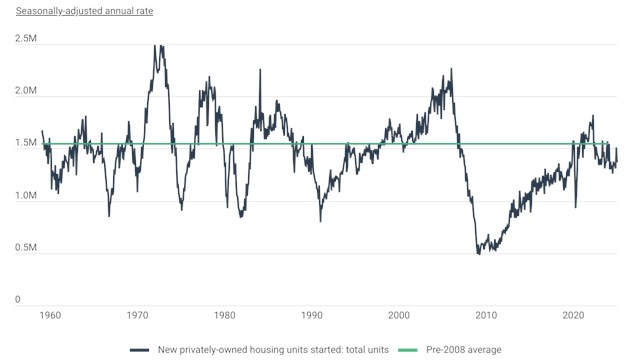
Anybody who has lived and worked in New York City for an extended period of time usually develops a sort of love-hate relationship with the city, rattling off a dozen reasons why Gotham is the only place they'd ever consider calling home as well the place that drives them crazy at least once a day.
Real estate professionals are no different—in fact, the people who sell and manage the city's co-op and condo apartments may have even more reasons to both adore and despise New York than folks who don't spend their days wrangling board members, shepherding demanding buyers toward closing, soothing ruffled residents, and chasing down recalcitrant contractors. We spoke to some of those professionals to see what they had to say about working in such an amazing, aggravating place.
No Two Alike
Christopher A. Potter, vice president of Manhattan’s GuardHill Financial Corp., says that he’s often asked what he loves about working in New York City. He describes how vastly different each day is in his business. One day he might be working with a top 2011 NBA draft pick, and the next he’ll meet a famous Parisian artist.
“I don’t just meet these people,” Potter says. “I deal with them on such a personal level that I really get to know them and how they have gotten to where they are today.”
One such story stands out in Potter’s memory. The man owned a rental building in Murray Hill that he wanted to refinance. “He told me how he and his wife moved to the United States with nothing,” says Potter. “He started working as a super, and saved everything he could to buy this building. He’s still a super, and he told me how some residents look down on him. Little do they know he owns over $10 million in real estate with basically no debt. It was amazing to hear his story and how humble he is.”
Edward E. Longley, CEO and founder of The Hollingsworth Group in Manhattan loves that his job’s not boring.
“I show apartments on the Upper West Side, Soho, Tribeca, and Midtown,” says Longley. “I remember we put in an offer on an apartment at 124 West 93rd Street for a client from Australia. We went to see the apartment for a second time and they told us that our offer was accepted. Immediately after we found out, we went to have a drink at Gabriela's, which was only a half a block away from the apartment. We had wine and appetizers and sat out in the sun and just had a great time. My client was so excited about landing the apartment—coupled with the amazing atmosphere, that it just made for a great experience.”
Broker Carmen Lee Shue of The Carmen Lee Shue Real Estate Showrecalls working with one client who was relocating from Hong Kong to Baltimore and was looking to invest in real estate. She took him around and showed him several properties on the East Side of Manhattan, as well as a couple on the West Side, including one in Trump International on Central Park West.
“He thanked me for working with him, but told me that he was going to purchase an apartment in the Mondrian on the East Side that he had seen with another broker,” says Shue. “I told him to take a day to think about it and call me back about the apartment in the Trump building, because when he goes back to Hong Kong and tells his friends and family that he purchased an apartment in the Mondrian, they're going to ask, ‘What's a Mondrian?’ But if he tells them that he purchased an apartment in Trump International on Central Park West, they are going to be impressed.”
Just as Shue predicted, her client called the next day and they signed the contract on the Trump International apartment.
Pleasure & Privilege
Michael Berenson, president of AKAM Associates says that managing buildings in New York City is both a pleasure and a privilege. He remembers one particular time where good planning was put into action in dramatic style.
“One Friday, we had just finalized our new emergency protocol with new phones and a new process for contacting the necessary individuals,” Berenson explains. “The protocol looked great on paper, but we hadn’t yet tested it. Late the next night, we got the call from the building superintendent saying that a resident had fallen asleep in bed with a cigarette, and the resident’s apartment—and possibly adjacent apartments—was in flames.”
Berenson says that the then-new emergency protocol worked like a charm. “We had just finalized our new emergency system roughly 24 hours before, and it worked without a hitch,” he says. “Within about half an hour, the property’s manager and assistant, both of whom live in the outer boroughs, as well as the entire AKAM Operations Team, were assembled at the property and interacting with the Fire Department, the building’s insurance carrier, the board, and the building’s residents. It was great to see everyone from our office converging on the situation at the same time; we had done an excellent job getting everyone there.”
Gerard J. Picaso, president of Manhattan-based property manager G. J. Picaso, Inc., loves what he does. His favorite work story is when a co-op building was converting their commercial space into additional units. “We sold it for over $20 million, which allowed the building to pay off its mortgage, and in the end, cut its maintenance by 24 percent,” he says. “That was the biggest, best thing that I ever did, even though it took five years to implement it and see it through.”
The Other Side of the Pillow
As exciting as living and working in New York City is, there are just as many reasons that professionals would say that doing business in the Big Apple can be a big pain.
Longley says that working in the city that never sleeps can mean professionals don't sleep much either—he often dedicates nights, weekends and even vacation time to work.
“Once I was in Syracuse for a short vacation to see a friend of mine, and we went to a football game on Saturday night, but I was interrupted by a call from one of my clients who wanted to go out see apartments the next day,” he says. “So, I left the game and immediately went back to the hotel and worked on his schedule for the next day. Then I checked out of the hotel at midnight and drove six hours back to New York City and showed him 15 apartments the next day. He did buy an apartment from me but it was very hectic to work on the schedule. I don't like having to work nights, weekends and vacations, but I accept it as it is part of being a good broker.”
Picaso has been managing New York City buildings since 1976, and says that New Yorkers are so fast-paced that everyone wants instant gratification. “For example, I’ll have appointments in the morning at buildings, then come into [my office] at 11 a.m.,” he says. “I’ll have an email from a board president saying that Mr. Smith called me five times, and why haven't I responded. That’s not an exaggeration.”
Picaso believes that this differs from other parts of the country. “If you have relatives in the South or the West Coast, the pace is much slower,” he says. “I don’t know what we did years ago when we didn’t have texting or email. On the other hand, there are New Yorkers who are very tolerant and understand the process and want to abide by it.”
Shue agrees, saying that her least favorite part about living and working in New York City is that everyone is always in a hurry, on their cell phone and “ready to knock her down.”
Berenson says that his least favorite part about working in residential property management is when he has to assist a board in removing a resident who creates an untenable nuisance, poses a danger to those in the building, or who can no longer live alone safely.
“It is heart-wrenching to have to work with family members and city agencies to remove someone from their home,” he says, “but we recognize that it is for the benefit of the greater good of the building, and also ultimately to protect the individual. It has to be done sometimes but it is never pleasant.”
So how do they all handle the pressure? Picaso quips that inside every managing agent’s desk you’ll find a bottle of Jack Daniels. He’s kidding, of course, but it's that combination of affection, commitment, and good humor that keeps the city's real estate pros—and their client buildings—going strong.
Lisa Iannucci is a freelance writer and a frequent contributor to The Cooperator.






Leave a Comment